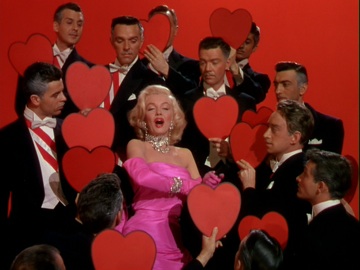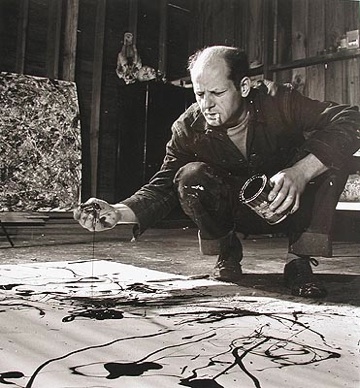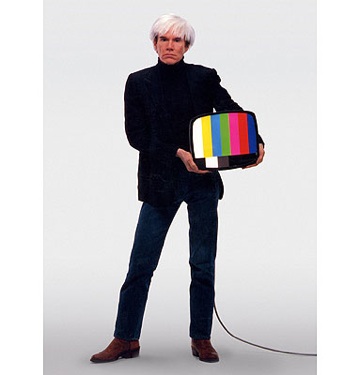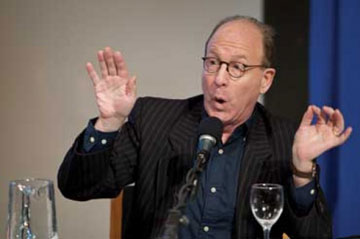One of the hot topics among young artists these days is the show Work of Art on Bravo. Take a dozen artists mostly trained in art schools, give them really inane art assignments and let them have at it. Throw in gallerist, curator, critic personalities whose job it is to make the artists pee their pants, and there you have a reality art TV show. To be honest, I watched it a few times but got bored with the art. I guess that not even a pep talk from Sarah Jessica Parker was enough for them to raise the stakes.
One surprise, however, was the presence of Jerry Saltz as one of the judges.
When I just loved art, before I decided to study it, and at the beginning of making it, I used to read his articles in the Village Voice. His direct style, humor, and sincerity were a bridge to a world that I wanted to inhabit. His writing inspired me to articulate my own thoughts about the work I was seeing regardless of training.
Eventually I got to meet him – at art school – and he was pretty much the same in the flesh as on paper, but I got to see him wave his arms at my studio mess (akin to the image above). Shortly thereafter he appeared on a very high stool on networked TV wreaking havoc. After I read his reflection on being part of Work of Art in New York Magazine, I decided to track him down and ask him a few questions. I wanted to know about his experience on the show as performance, and whether it changed his perspective on his role as a critic. The following is our interview and its many twists and turns, read on!
Marissa Perel: I’m glad I caught you. You’re going on a tour, right?
Jerry Saltz: Yes, I’m giving a lecture tour, “Criticism Never Sleeps” starting in Detroit, then Chicago, St. Louis, Oklahoma City, Kansas City, NYC, then London where I’ll be at the Frieze Art Fair.
MP: You’re like a traveling minister.
JS: My career policy is to just say yes, try anything, try everything, get terrified, try harder and don’t look back.
MP: Sounds like your debut as a television personality made you fearless. When I was reading your article, I was struck by the physical scrutiny and augmentation you went through doing the shoots. Can you talk more about that and how it affected your sense of authority? What was it like to have to talk about the work live vs. the personal space of being a critical writer?
JS: The make up, all the people standing around me while I had to stand on a box with a hundred cameras on me was actually ok. It was more a temporal problem. The form I’m comfortable in needs more time. I’m a slot writer. It takes all 6 days for me to write a little column. Writing is a way that I think, and speaking does not access all of my critical responses, thoughts, etc. I didn’t fully relate my critical self even though my personality was there. I wasn’t articulate enough about what I like because in speaking there is no time for editing. The Bravo people more or less made me who I am on the show by their editing. I’m not ashamed of it but I wish I could have [done that] on stage more articulately or clearly.
MP: That’s interesting, the difference for you between thinking through speaking and thinking through writing. I have to say that the way you talked on the show confused me because I did think that parts of your critical faculties were lost in that context. I didn’t know if it was intentional, or if you were frustrated. I can see how it might have been an internal frustration under the pressure to perform your craft. Have you thought of ways to perform it better if you were to do it again?
JS: That’s a good question. I would put more pressure on my thinking to make sure that everything I say has a judgment and an explanation in it.
MP: What do you mean?
JS: For instance, I would not just say something is conventional. If I saw a performance I thought was conventional, I would say, “this is conventional because it reminds me of performance in the 70s where people smeared brown oozy stuff on their bodies, but that is not personal,” and then I’d let the editors edit that down.
MP: [cannot stop laughing]
JS: The thing is that I need more time, like 6 days with an artist. Maybe I need a blackboard to write down my sentences like Glenn Beck.
[youtube:https://www.youtube.com/watch?v=NMww7JhAd5k]
MP: First I compared you to a traveling minister, and now you just compared yourself to a Fox network personality. Is that where you see yourself going as a performer?
JS: You might think it’s funny, but that’s how I felt — out-performing myself. You go further, you’re riskier, but this was a highly contrived TV show format. I was just putting myself in someone else’s form. You’re more complex.
MP: Thanks, Jerry, I wasn’t making a comparison between performance art and performance for television, but I appreciate that you thought about it like spanning those spheres. Tell me more about the contrived parts of the show and the framing of personalities that took place.
JS: Jeanne Greenberg is smart as a whip, very smart, very fast, but she was edited to just seem like a tall, slim, glamorous socialite. In person, she doesn’t present that way. She was more of an alpha presence in our private arguments than I was. I am so open to arguments, I usually follow. I didn’t like to decide who should stay or go. But Jeanne is not like a blonde voluptuary. She is a very educated, very innovative professional.
MP: Voluptuary? Did you just make up your own word?

"Blonde voluptuary": Marilyn Monroe in "Gentlemen Prefer Blondes"
JS: Yeah, I think I did. I’m a wise guy. You can use it for your own work
MP: I like it. I think I will. I think it applies. It’s helpful to hear you talk about this end of the production because there was something to me about the presentation that flattened the brilliance I would expect from people like you and her. For this reason, I became turned off by it.
JS: I appreciate your kind words. I did say [in my article] that everyone in the art world hated the show. Roberta never watched the show once. I thought the shows were boring. I didn’t actually watch them after we taped the episodes.
MP: Ok, well given that this is something we seem to agree on, what was it about being on the show that inspired you or kept you invested? Do you see your role as a critic differently now? Do you see it shifting, and if so, how?
JS: I wanted to perform art criticism. Like I wrote [in my article], I went looking for something and something else found me. When it came to the readers’ responses to the recaps I published after each episode, I took everything seriously. If readers said, “you’re a flaming asshole,” I didn’t take it personally. If criticism is a potentially dying animal — when you’re my age, there might not be any magazines or newspapers — this was a way to get something going so that many voices can speak to one another.
MP: When you put it that way, it changes my perspective on the power of your visibility as a critic. It makes it sound like something is at stake for you in communicating the function of your role to mainstream audiences that is more than sensationalizing.
JS: I’m a lifer. I will live and die in the art world. I want to be Sister Wendy.
MP: [explodes into laughter] Well, you could’ve had quite the talk about Andre Serrano.
JS: Put a habit on me and I’ll go out there! But not with Andre, I’m ok with him now. I just want to make this accessible to the world. Not just the art world. I mean, it is not that far away from art school. Everyone is next to each other in their studios trying to live up to a success that very few of them will ever have. But a person can will themselves to greatness.
MP: I want you to tell me what you mean by that.
JS: I mean a person can will themselves to greatness. Take, for instance, Jackson Pollock. He had no natural talent. He wanted it. He had to have it, and he made what he had work.

"No natural talent": Jackson Pollock painting in his studio, Springs, New York, 1949 © Time Inc.
MP: [snorts] Ok, I buy what you’re saying because you are deconstructing that myth of genius. I appreciate your honesty and that will is something you actually believe in as opposed to seeing it as a betrayal.
JS: This lay audience opened up a whole new experience for me. I want to make criticism dialogue-based instead of monologue based, but I don’t like name-calling. I like the ideas. I’m surprised more critics aren’t making more on-line magazines together. The profession pays crap anyway, like $100 for an article. I do it because I have a need to do it.
MP: It sounds like you are consciously sacrificing your own authority for the greater good of criticism, or that you are some kind of martyr for the form.
JS: I’m not saying I’m consciously sacrificing myself. My motto is, “take anything you want from me.” You can do anything you want with my work. I want you to use it. When I’m dead, I’m not going to know what people did with my work. I’m trying to establish a different kind of authority, credibility, respect, even if people think I’m a bozo.
I’m not a smarty-pants art critic. I am what I am. Warhol sacrificed authority to do what he needed to do. He sacrificed the authority of the language of painting. He stopped applying the colors that people liked, he used other techniques and did it the way he wanted to do it. No one had ever put those colors together before. It could be lazy and stupid but it was his and he owned it. I want to do it and be the best that I can.

Andy Warhol "sacrificed the authority of the language of painting." Courtesy the Wexner Center for the Arts.
MP: So I can reverse every statement you made in this interview and you’ll be fine with that?
JS: I’m willing to let go of my words or actions and let them be construed in any way. I think everyone is entitled to their own opinions. I know that I have a deeper reason for doing this the way you do with your work. You are filling a hole that your parents left. It’s not for the money.
MP: So you see yourself as a conduit for this new form of dialogical criticism because you feel that you are called to put yourself in this position as the people’s critic?
JS: I’m a folk critic, a curious critic, an over-achieving critic. I’m experimenting with the form, but I don’t have the intellect to do it. Imagine what the editors of Artforum could do with this form, but they don’t.
MP: Well, they’ve worked hard for the authority they have. Do you think they’d feel threatened by allowing it to be questioned publicly?
JS: People are afraid of being stupid, of making mistakes, of being silly. The art world is actually very conventional.
MP: And you have found a way to subvert that?
JS: I have found a possible way that works for me and fulfills a need that I have. Art criticism contains multitudes, and I want to dive in and swim in those waters before it’s too late.
MP: What do you mean, like too late for you? Jerry, what is your story? How did you come to criticism?
JS: I dropped out of the School of the Art Institute of Chicago and co-founded Name Gallery in Chicago. We curated about 75 shows, and my work was shown around Chicago.
MP: Paintings, I imagine.
JS: Yes, I was working on a 25-year project painting the story of Dante’s Divine Comedy.
MP: Get out, Dante? What made you stop?
JS: You know, I was doing well showing my work. I got an NEA grant, and I moved to New York. I was on the third canto, and I got eaten up by fear. Have you seen my latest Facebook update?

Dante and Beatrice speak to Piccarda and Constance of Sicily, in a fresco by Philipp Veit, Paradiso, Canto 3: "But already my desire and my will were being turned like a wheel, all at one speed, by the Love which moves the sun and the other stars."
MP: No, why?
JS: Wait, are we even friends on Facebook? Ask me to be your friend and I’ll accept it and then you can read what I wrote.
MP: Sure [signs onto Facebook, finds Jerry, etc.].
JS: So, what does it say?
MP: “Why aren’t you more successful? Why haven’t you achieved the success you want or think you should have? NO excuses. You can’t use race, class, gender, lack of schmoozing skills, not knowing the right people as an excuse…” Whoa.
JS: Well, that’s what happened to me. I let all my demons get to me, felt like it wasn’t gonna happen. I wasn’t going to get to the place I wanted to in order to make it as an artist.
MP: Oh no, what did you do?
JS: I became a long distance truck driver. I drove trucks from New York to Florida.
MP: Trucker Jerry with your little legs! What happened, what did you do next?
JS: I became a chauffeur. It was the 80’s.
MP: How did you come back to art?
JS: I started reading Artforum in the truck, and then couldn’t stop reading it every time it came out. I’d read the criticism and it didn’t make sense to me. I thought that as a critic you weren’t supposed to make sense. I was in agony as a driver, and I thought that writing criticism would be a way of re-entering the art world. On one of my first assignments, I was on a deadline and just wrote what I really thought instead of what I thought I should think. This gave me pleasure. I thought, “Tell people what you like and what you don’t like and make it accessible.”
MP: That’s an amazing story, Jerry.
JS: I didn’t start writing criticism until 40. I still love Artforum. I like to look at the pictures. They’re like porn, don’t you like them?
MP: I do, but I don’t get off on them. But speaking of Artforum, I am going to interview a critic who shares your sensibility about the accessibility of art criticism, especially for performance. Do you know David Velasco?
JS: Yes! We lost a generation of critics to academia. It was a tragedy. I have seen the best minds of his generation lost to their teachers’ taste. I love what he’s doing with language, with style, with tone, with pacing, with his own eye, with leaving himself open, with vulnerability – he’s part of a new generation of critics that are emerging. I think Sarah Douglas who writes for Art Info is like this also. A whole new generation of critics is crowning, and it’s an exciting time. And I have to go or else I’m going to lose my job!
[youtube:https://www.youtube.com/watch?v=rdZVWeA7a-Q]





Pingback: Let’s Go There: Marissa Perel and Artforum.com Editor David Velasco Talk Dance | Art21 Blog
Pingback: Open Enrollment | Choose Your Own Adventure: The Master of Fine Arts | Art21 Blog